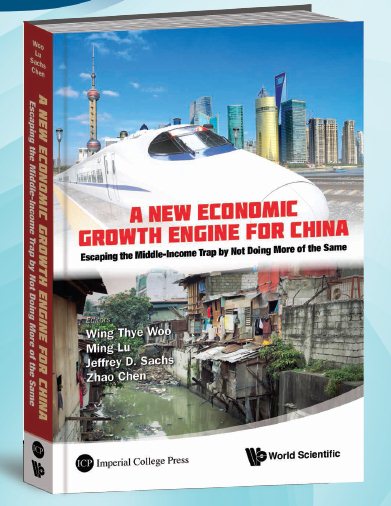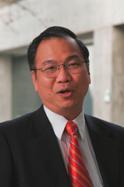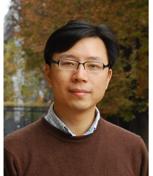
China is at the turning point of its development where its near double-digit growth is now threatened by challenges that the waking dragon has to overcome or risk being “caught in the middle-income trap and be unable to become a modern country”, write renowned economists Professors Wing Thye Woo, Ming Lu, Jeffrey Sachs and Zhao Chen in their book A New Economic Growth Engine For China: Escaping the Middle-Income Trap by Not Doing More of the Same, released by World Scientific Publishing and Imperial College Press.
The book identifies three classes of failure that could lead China to be trapped in the “middleincome” category. Firstly, a hardware failure, where one of the key economic mechanisms break down, e.g. a banking crisis that dislocates production economy-wide. Secondly, a software failure, which refers to a governance flaw that leads to periodic social disorders that disrupt the production process and discourage private investment. Thirdly, a power supply failure, which refers to either a natural limit (like global climate change) or an externallyimposed limit (like a trade war).
This book details how short-term demand management can be improved to render it more consistent with efficient growth; how economic, and political institutions can be reformed to accelerate middle-term growth; and finally, how long-term growth fundamentals can be strengthened to sustain the “power supply” that drives the hardware and the software When executed in conert, these three sets of measures will create the economic synergy that is necessary transform China into modern high-income country.
The importance of this book has been endorsed by Dwight Perkins, Professor Emeritus of Economics of Harvard University who points out that China had “enjoyed an unusually long run of high 'catch-up' economic growth” and that continuing to close the income gap would pose a new set of challenges. The economic challenges faced by China are of great concern to the rest of the world because of its impact on global prosperity and political harmony.
Ross Garnaut, Chair of the China Studies Program, Crawford School of Public Policy of the Australian National University and the Former Ambassador of Australia to China, agrees with this assessment: “Will China keep growing rapidly to become a high-income country? No question is more consequential for the world economy. In this book, some of the best analysts of China examine the challenges and gives us important answers.”
A New Economic Growth Engine for China: Escaping the Middle-Income Trap by Not Doing More of the Same is available at major bookstores and retails at US$98/£65/S$129 for the hardcover or US$40/£26/S$37 for the paperback. More information about the book can be found at http://www.worldscientific.com/worldscibooks/10.1142/8598.
About the editors:

Wing Thye Woo is Professor at University of California at Davis, Executive Director of the Penang Institute in Malaysia, Chang Jiang (Yangtze River) Professor at the Central University of Finance and Economics in Beijing, Distinguished Professor at Fudan University in Shanghai, and Director of the East Asia Program within The Earth Institute at Columbia University. His current research focuses on the East Asia economies, and he is now coordinating the work of three international research teams that will submit in 2012 reports on (a) Redesigning the Global Financial Architecture for the 21st Century; (b) The Key Economic Policies for Sustaining High Growth in China; and (c) Ranking the Livability of the Major Cities in the World.

Ming Lu is Professor of Economics and Director of Center for Industrial Development Studies at Fudan University, China. He has worked as a Fulbright Scholar, and Wertheim Fellow at Labor and Worklife Program of Harvard Law School and National Bureau of Economic Research (NBER). He is also Research Fellow of Peking University-Lincoln Institute and Adjunct Professor of Zhejiang University. He has consulted for the World Bank and Asian Development Bank. He has a Ph.D. in Economics from Fudan University. His recent research covers Labor Economics (income distribution, and migration), Regional and Urban Economics (urbanization, and regional development) and Social Economics (social network and economic development).
.jpg)
Jeffrey D. Sachs is the Director of The Earth Institute, Quetelet Professor of Sustainable Development, and Professor of Health Policy and Management at Columbia University. He is also Special Advisor to United Nations Secretary-General Ban Ki-moon. From 2002 to 2006, he was Director of the UN Millennium Project and Special Advisor to United Nations Secretary-General Kofi Annan on the Millennium Development Goals, the internationally agreed goals to reduce extreme poverty, disease, and hunger by the year 2015. Sachs is also President and Co-Founder of Millennium Promise Alliance, a nonprofit organization aimed at ending extreme global poverty. He is widely considered to be the leading international economic advisor of his generation. For more than 20 years Professor Sachs has been in the forefront of the challenges of economic development, poverty alleviation, and enlightened globalization, promoting policies to help all parts of the world to benefit from expanding economic opportunities and wellbeing. He is author of hundreds of scholarly articles and many books, including the New York Times bestsellers The End of Poverty (Penguin, 2005), Common Wealth: Economics for a Crowded Planet (Penguin, 2008), and The Price of Civilization (Random House, 2011).

Zhao Chen is the Deputy Director and Professor at the China Center for Economic Studies (CCES), Fudan University. His research interest covers Development Economics as well as Urban and Regional Economics. Currently, he works on following topics including entrepreneurs’ political participation, Hukou system and rural-urban migration, inter-industrial wage differentials. He has published in publications such as the Journal of Comparative Economics, Review of Income and Wealth andInternational Small Business Journal.
